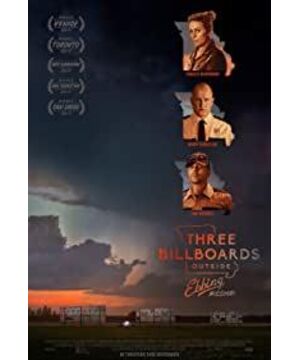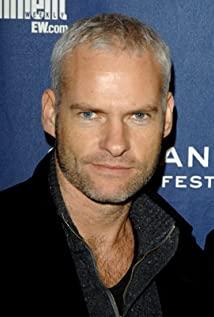When Bob Dylan won the Nobel Prize, the jury said that he "created a new poetic expression under the great tradition of American ballads." At that time, I wondered: Why do I always feel that I don’t get along with the “American tradition” when I hear the word “great”?
After seeing this movie, I realized that I had loved and hated Hollywood since I was a child, and the impression that "American pop culture is approximately equal to Hollywood, and Hollywood is approximately equal to a simple narrative" still remains in my mind. I have always felt that the American film industry’s simplification of drama conflicts in order to expand its audience limits the development of mainstream films and also limits the power of American stories. "Three Billboards" proves that Hollywood-style narrative has entered a stage with richer levels. Although the secret formula is still unclear, its future is not gloomy.
The traditions that "Three Billboards" continue are those of "Twelve Angry Men" and "Killing a Mockingbird": in the middle and lower classes of society, either fictitious or real, citizens accumulate hatred on the verge of; this When one or a few wise men appeared, leading the entire social network to re-examine their anger, after a few key drama conflicts, everyone gradually found the direction of salvation. "Three Billboards" has two breakthroughs: it no longer despises anger and hatred, but regards anger and hatred as part of the wise; in the process of narration, it does not deliberately dwarf a certain character, everyone has The possibility of becoming a wise man.
Francis McDomond plays a vengeful and tough mother, Woody Harrison plays a terminally ill and beloved sheriff, and Sam Rockwell plays a rude and stupid local policeman. In order to urge the police to uncover the murder of her daughter as soon as possible, the mother bought three billboards at the end of the highway and used three short sentences to question the sheriff. If traditional Hollywood screenwriters are allowed to portray these characters, the mother is most likely a representative of human weakness, arousing sympathy from beginning to end; the sheriff is most likely to become a wise man and guide the undercurrent of the small town residents to reflect on themselves; the dumb policeman represents After a few turmoil, he started to learn to be a qualified citizen.
After the film ended, I followed this routine and took my seat, and found that there was no problem: the mother was indeed worthy of sympathy, the sheriff was indeed portrayed as a wise man who enlightened the audience, and the stupid police did indeed pay the price and received salvation. But some things are different. These different factors make the film full of surprises and make the viewing process chewy from beginning to end.
These factors come from respect for anger and hatred, in other words, from respect for irrationality. When her mother couldn't bear it and threw a Molotov cocktail at the police station, she was sheltered by the man who had a crush on her, and her anger was forgiven by fate. This is difficult to allow in traditional Hollywood narratives.
More importantly, the film reveals a common sense that is often overlooked by dramatists: the boundary of hatred is goodwill, so a soul full of hatred not only has the ability to stay awake, but may also be intelligent, humorous, and even a little gentle occasionally. In addition, a stupid person does not necessarily have to be enlightened. His own will and decisions are the source of his dignity; he should not be just a citizen below the standard line, and his stupidity cannot offset his complexity. .
This film cares about the residents of small towns in Missouri, the hatred, and the sources of violence and prejudice, so it is of course drawn by many people into the current American politics and society to watch. But I think that the part of the movie that tries to discuss the current situation is its weakest part: a girl incorrectly quoted "hate begets hate," a police detective cleverly replacing "niggers" with "colored people", a priest Nailed to the pillar of shame that the Catholic Church guards and steals...not to mention these bridges. In contrast, I would rather use this movie to rethink why the Nobel Committee used the word "great" to describe a traditional American problem. Thomas Jefferson’s tradition is a rural, self-reliant, and civic-oriented tradition. This tradition has been prejudiced in history, but it has also shaped the core character of "sovereignty in the people" in American society. There are wise people in small towns, wise people have anger, anger is not anti-intellect, this is not only possible in the United States, but also the most respectable.
"Three Billboards" reminds people not to underestimate the anger, let alone the wisdom of the little people. It grasps the most attractive temperament of the United States, and it is secretly connected with the ballad of Bob Dylan. Interestingly, although most of the actors are from the United States, Martin McDonald, who wrote and directed the film, is an Englishman.
View more about Three Billboards Outside Ebbing, Missouri reviews











